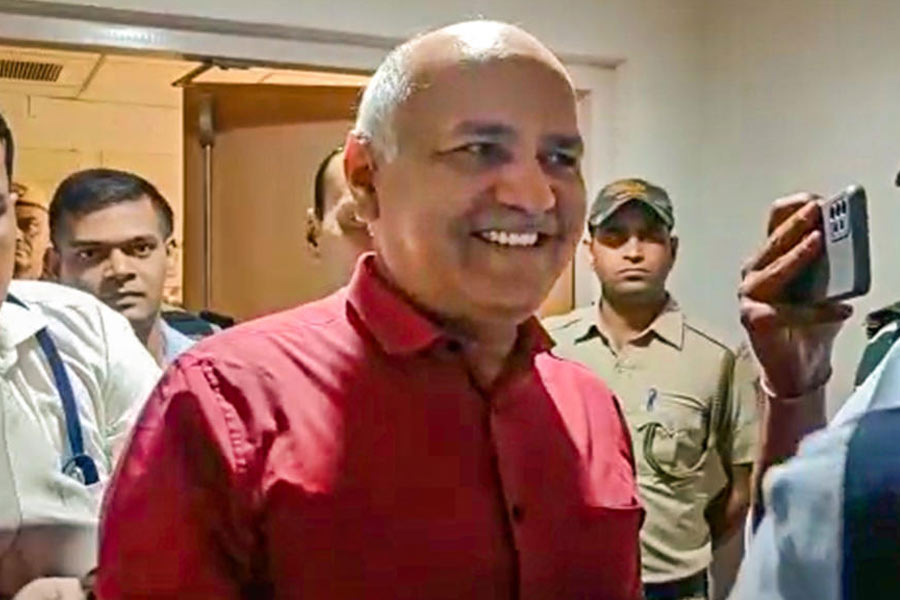The Supreme Court's bail order in favour of Manish Sisodia can spur lower courts into embracing the principle that bail is an entitlement irrespective of the seriousness of the charges, including terror cases, several eminent lawyers told The Telegraph.
Some others, however, were less optimistic.
Indira Jaising, senior advocate in the Supreme Court, clarified that she had not examined Friday’s order when this newspaper contacted her.
She, however, said: "In this (Delhi liquor policy) case, it was a policy decision of the entire cabinet and there is no way that an individual minister could be held responsible. That is the main issue, but that main issue was not getting ventilated in court for some reason and he was in jail for the last 1.5 years."
She added: "That (the principle of presumption of innocence) has to apply across the board. It doesn’t matter if it is the UAPA. What matters is that a person is innocent until proven guilty….
"There was a tendency in the courts to regard the seriousness of the charge as a reason for departing from the principle of 'innocent until proven guilty'. This judgement brings back the compass to its proper place, which is that you are innocent until proven guilty regardless of the offence and therefore bail becomes an entitlement."
Senior advocate and estranged former AAP leader Prashant Bhushan tweeted: "Good judgement by the SC today granting bail to Manish Sisodia. Another slap on the ED & its political actions. Important directions in the Judgement about undue delay in trial leading to bail even in UAPA & PMLA cases. Will have an impact on Delhi Riots & Bhima Koregaon cases."
In both cases, filed under the stringent anti-terror law Unlawful Activities (Prevention) Act, activists have been locked up in jail for years without bail despite the trial not starting.
However, a prominent criminal lawyer advised against getting one’s hopes up.
The lawyer, who did not wish to be named, explained: "The conditions for granting bail are far more stringent for financial crimes than they are for cases under the UAPA. Yet you see businessmen and politicians easily getting bail as there is a mindset in favour of them. Courts don’t care much about activists or Muslims. On the ground, I expect zero change after today’s order."
Human rights advocate Sarim Naved said the apex court had last month followed the precedent of the 2021 K.A. Najeeb case and held that appellate courts can grant bail if there has been a delay in trial in UAPA cases.
"Today’s order will definitely have a bearing on this trend of punitive arrests of people that the government does not like," he told this newspaper.










